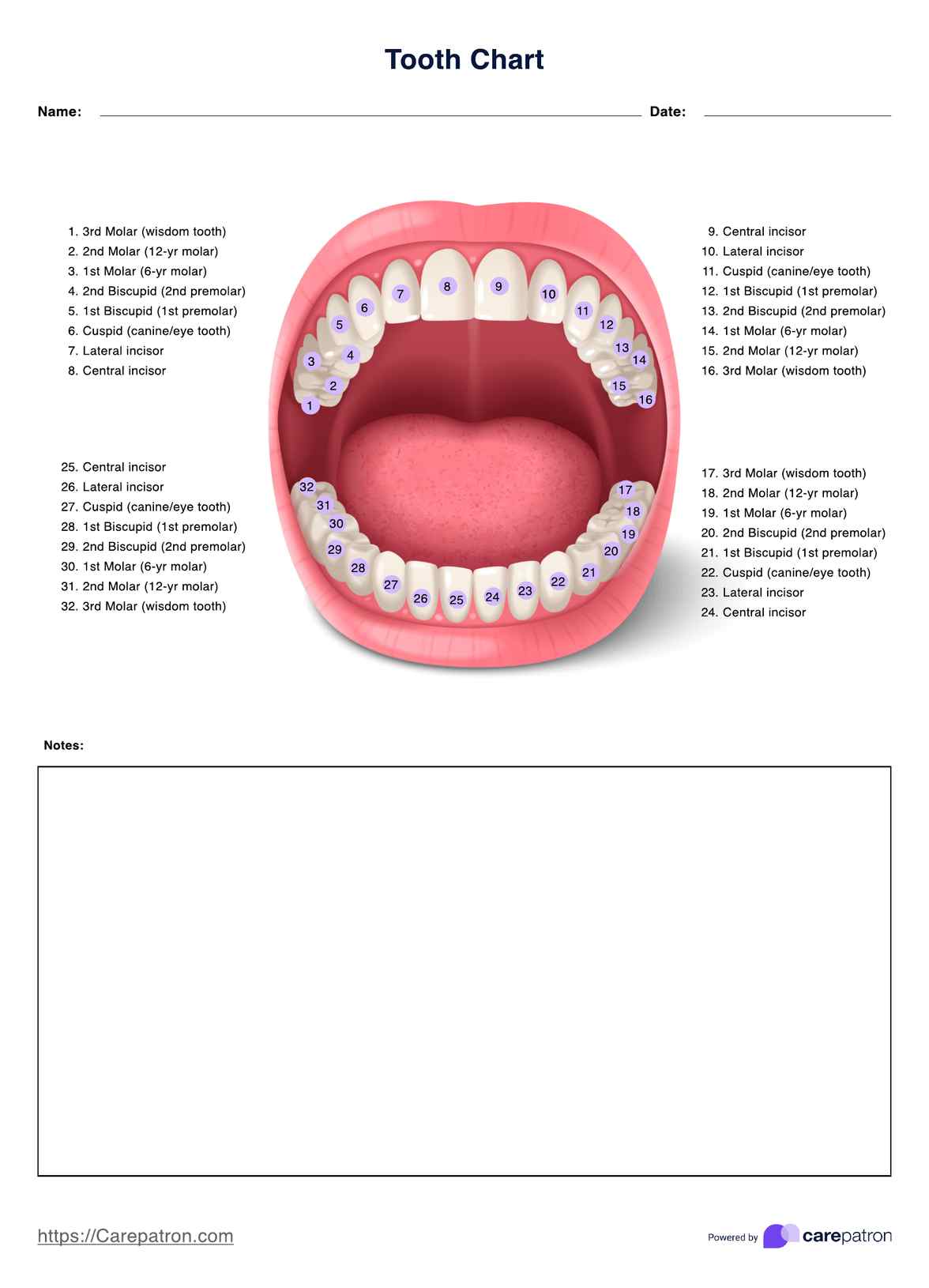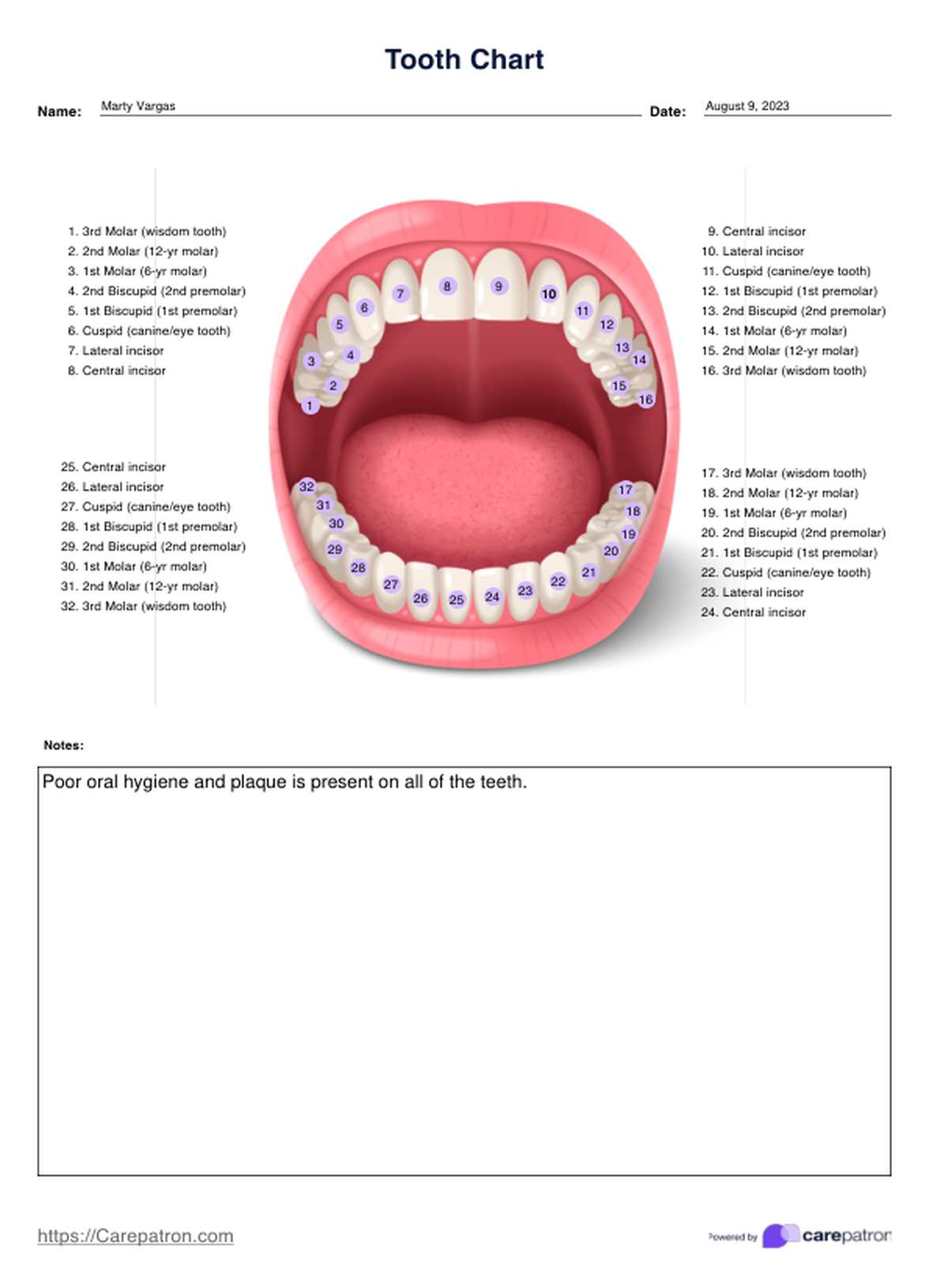
Use our Tooth Chart template specifically designed for dentists. Grab a copy for review, reference, or note-taking.



Dental professionals use a system to identify and designate individual human teeth within the oral cavity. This is a standardized approach for precise and effective communication regarding specific teeth in diagnoses, treatment planning, and discussions. Two well-known tooth numbering systems exist: the Universal Numbering System and the Palmer Notation Method.
The Universal Numbering System, which is more widely utilized, assigns a unique number to each tooth and names them differently. It starts from the upper right third molar, designated as tooth number 1, extends along the upper arch to the upper left third molar, tooth number 16, and proceeds down the lower arch from the lower left third molar, tooth number 17, to the lower right third molar, tooth number 32.
PDF Template Example PDF

A Tooth Chart is a visual aid for understanding dental anatomy and identifying the specific teeth within the mouth. Typically featuring an illustration displaying each tooth with its corresponding number and name, this chart offers a comprehensive guide to the adult set of teeth, which commonly totals 32, including the wisdom teeth. By labeling each tooth, dental professionals can efficiently record relevant information during examinations, ensuring accurate documentation of dental health.
Also known as a tooth number chart, it is a practical tool for dental practitioners and students. Its utility extends to aiding in reviews and providing visual assistance for patients to comprehend the condition of their teeth more effectively.
Incorporating the Tooth Chart into your dental practice is easy. Follow these steps to get started:
You can start by downloading the tooth number chart PDF from our website. It can be used digitally, or if you want to display a copy at your dental clinic, it's best to print it. Familiarize yourself with the tooth numbers.
Once you have the chart, you can use it for dental work. Whether you need it for patient consultations, educational purposes, or treatment planning, the tooth number chart provides an apparent visual reference for dental professionals and students. For specific guidance on utilizing the chart effectively, refer to the "When would you use this template?" section below for practical suggestions and scenarios.
A designated space for notes is provided at the bottom of the chart if you prefer to document specific details or observations regarding a patient's dental condition. This optional feature lets you keep track of important information during consultations or treatment sessions, enhancing your ability to provide comprehensive care.
This handy guide can be used to do the following:
Don't miss out on the opportunity to enhance your dental practice.
Memorizing teeth numbers and names is necessary, but using a chart will greatly assist during consultations. Here are some benefits of using such:
Make sure to incorporate this essential tool into your toolkit today.